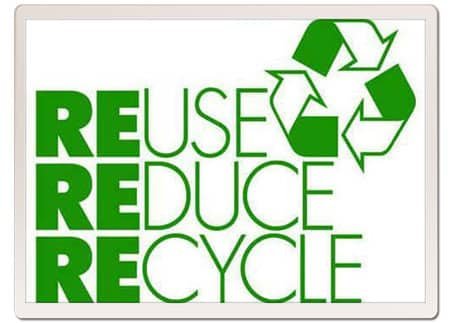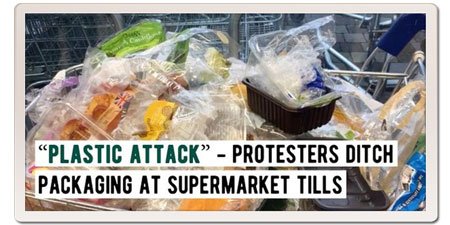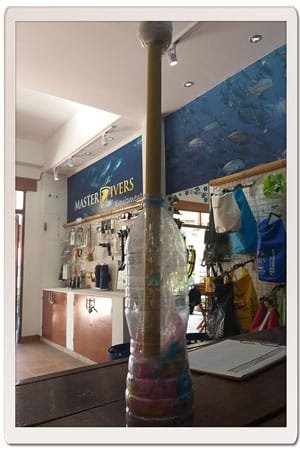The problem of waste
Happy New Year, everyone! For us 2019 started off with a bang. That is, we had some lovely fireworks on the beach and then we had storm Prabak. Despite some interesting facts from the press, it was not as bad as expected.
Once we got through that our focus for the month went onto the problem of waste. Every month I try to write a presentation that is linked to a quiz and a film of a similar subject and I regularly find myself going on a journey of discovery. I started to think about recycling and the truth of what really happens to our waste once we drop it in a bin. Where does our waste go? Who deals with it? What is the best way of managing it? What I discovered was a massive revelation to me and lead to the start of one of our biggest projects to date.
Reduce, reuse and recycle
I feel like the picture below makes it onto every eco presentation I make, but how much can we really do? I had read about a group in the UK called Plastic attack. They had formed a group off the back of their distress from the amount of unnecessary plastic packaging in their weekly food shopping, according to research the number one complaint from UK households. They decided to do their weekly shop in their local supermarket together, remove all the unnecessary packaging that they didn’t need or want, and give it back to the store for them to deal with. If consumers do not want it, why should we be the ones that have to deal with it?! This was where my inspiration came from. Not only is it an awesome idea but also, it’s a great example of a community coming together to deal with a common problem.

Wasteful business
The majority of this packaging is not recyclable. There are limited plastic products that are in fact able to be recycled. On my journey I was shocked to find out how little is actually recycled in the UK and US. In facts the global leaders on recycling are Switzerland, Netherlands and Germany that recycle on average 60% of their waste. The UK is sending 55% of its waste to landfill and incineration! In fact, I remember when I lived in Bristol that our local council didn’t collect plastic bottles for recycling, we had to save them up and take them to our local shopping centre to drop off in bigger bins. I strongly believe that more people will ‘opt in’ if it is easier to do. That said, on my educational journey I discovered that much of our recycling is sold and transported half way across the world to be recycled and used in manufacturing. Waste it seems is a big business for some.

Koh Tao Earth Day
Our former eco warrior and dive operations queen Lynne had started to make eco bricks last year from used plastic water bottles and unrecyclable plastic, things like food wrappers, plastic bags and packaging, and I was starting to think about what we might do with them. I turned to Ecobricks.org to start to research more about eco bricking and what could be created and the first thing that jumped out was about building walls/partitions for building a garden. What a fantastic way to recondition plastics, to create something that would actually benefit the environment. I thought back to the plastic attack project and knew that this would be a great opportunity to get the whole community involved, and the Koh Tao Earth day group, a cooperative of dive schools focused on the environment, have the experience and funds to organise a potentially large project.

Eco bricking
The Eco Brick project begins. The plan is so far is to start eco bricking in our respective dive operations and get as many people involved as possible. Crystal has already run a couple of successful Eco Bricking workshops and we will be following this month as well. Once we have made/half made some eco bricks we will be getting the island kids together from international, Thai and playschools to learn about waste/plastic and start making eco bricks themselves. We can encourage good recycling habits and reveal our plan to build them a garden where they can then learn about growing plants and vegetables. The plan is to make this an island wide project that the whole community can get involved in. We want our awesome community to join together to create something long lasting and environmentally beneficial for the future. Watch this space for updates!!
